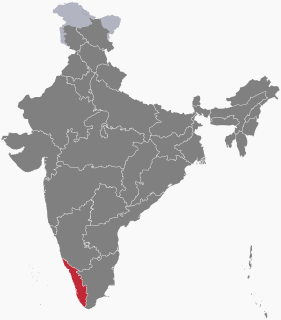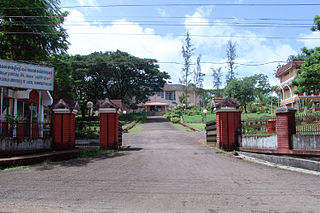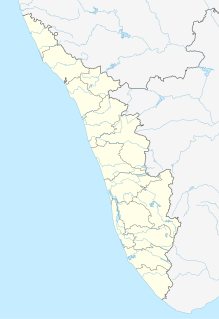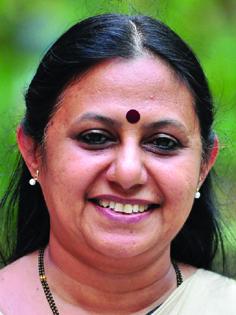Related Research Articles
A nonprofit organization (NPO), also known as a non-business entity, not-for-profit organization, or nonprofit institution, is a legal entity organized and operated for a collective, public or social benefit, in contrast with an entity that operates as a business aiming to generate a profit for its owners. A nonprofit is subject to the non-distribution constraint: any revenues that exceed expenses must be committed to the organization's purpose, not taken by private parties. A wide array of organizations are nonprofit, including most political organizations, schools, business associations, churches, social clubs, and consumer cooperatives. Nonprofit entities generally seek approval from governments to be tax-exempt, and some may also qualify to receive tax-deductible contributions, but an entity may incorporate as a nonprofit entity without securing tax-exempt status.

The Kerala model of development refers to the practices adopted in the state of Kerala, India. Characterized strong social indicators such as education, healthcare, high life expectancy, low infant mortality and low birth rate, often at levels comparable to developed countries despite having a low per capita income. These achievements along with the factors responsible for such achievements have been considered characteristic results of the Kerala model.

Elections in Kerala are regularly held to fill government officials at all levels of government in both Kerala and India as a whole. These range from national elections to regional local body or panchayat elections.

Attappady Reserve Forest is a protected area comprising 249 km² of land covering the westernmost part of the 745 km² Attappady block of Mannarkkad Taluk in Palakkad district of Kerala, India. It is one of many reserved forests and protected forests of India.

Mankada is a hillside village in the Malappuram district of Kerala state. It is located 15 km (9.3 mi) from Malappuram and is part of the Malappuram parliament constituency. The municipal town of Perinthalmanna is just 10 km (6.2 mi) away. Also, the municipal towns of Manjeri and Malappuram are just 15 km (9.3 mi) away.

The importance and antiquity of education in Kerala is underscored by the state's ranking as among the most literate in the country. The educational transformation of Kerala was triggered by efforts of the Church Mission Society missionaries, who were the pioneers that promoted mass education in Kerala, in the early decades of the 19th century. The local dynastic precursors of modern-day Kerala—primarily the Travancore Royal Family, the Nair Service Society, Sree Narayana Dharma Paripalana Yogam and Muslim Educational Society (MES)—also made significant contributions to the progress on education in Kerala. Local schools were known by the general word kalaris, some of which taught martial arts,but other village schools run by Ezhuthachans or Asians were for imparting general education. Christian missionaries and British rule brought the modern school education system to Kerala.

The Centre for Development Studies (CDS), Trivandrum, Kerala, India is a social science research institution. Its main objective is to promote research, teaching and training in disciplines relevant to development.

Kerala Institute of Local Administration, abbreviated as KILA, is an autonomous training, research and consultancy organisation constituted under the Ministry of Local Self Government, Government of Kerala, registered as per Travancore – Cochin Literacy, Scientific and Charitable Societies Act-1955. KILA was established in 1990, in the pattern of a national institute, with the main objective of strengthening decentralization and local governance.
Kerala is a state in the southernmost part of India. Kerala, with appreciative development indicators comparable to developed countries, has been experimenting with decentralization and participatory local democracy, ultimately aimed at realization of the constitutional goal of establishing genuine "institutions of local self government" since the enactment of Kerala Panchayat Raj Act & The Kerala Municipality Act in the year 1994.

Vettikkavala is a village in Kollam district in the state of Kerala, India. It is famous for the famous Shiva-Vishnu temple situated there with a special deity called Vathukkal Njaali Kunju for whom there's an annual offering of Pongala. The village is famous for temple arts and a palace constructed by Sree Moolam Thirunal.

The National Rural Employment Generation Scheme (NREGS) is an employment scheme in India for providing 100 days guaranteed wage employment for all employment seekers above 18 years of age and willing to do work. The scheme came into force on 1995 in 199 districts in India and extended to another 130 districts later.
Municipal or local governance refers to the third tier of governance in India, at the level of the municipality or urban local body.
Local government in India refers to governmental jurisdictions below the level of the state. India is a federal republic with three spheres of government: central, state and local. The 73rd and 74th constitutional amendments give recognition and protection to local governments and in addition each state has its own local government legislation. Since 1992, local government in India takes place in two very distinct forms. Urban localities, covered in the 74th amendment to the Constitution, have Nagar Palika but derive their powers from the individual state governments, while the powers of rural localities have been formalized under the panchayati raj system, under the 73rd amendment to the Constitution. For the history of traditional local government in India and South Asia, see panchayati raj.

Despite India's 50% increase in GDP since 2013, more than one third of the world's malnourished children live in India. Among these, half of the children under three years old are underweight.
GSLP is the short form for Gender Self Learning Programme, under State Poverty Eradication Mission of the Government of Keralam, a state in India.

The Student Police Cadet (SPC) Project is a school-based initiative by Kerala Police, implemented jointly by the Departments of Home and Education, and supported by Departments of Transport, Forest, Excise and Local Self-Government. The project trains high school students to respect the laws, practice discipline, and to develop civic consciousness and empathy for vulnerable sections of society. It also strengthens commitment towards the family, community, and the environment, enabling them to resist negative tendencies such as substance abuse, deviant behavior, intolerance, and other social evils.
The Agency for Non-Conventional Energy and Rural Technology (ANERT) is a government agency in the Kerala, India. Its mission is gathering and disseminating knowledge about non-conventional energy, energy conservation, and rural technology. The agency was established in 1986 with its headquarters at Thiruvananthapuram.
National Rural Livelihood Mission (NRLM) is a poverty alleviation project implemented by Ministry of Rural Development, Government of India. This scheme is focused on promoting self-employment and organization of rural poor. The basic idea behind this programme is to organize the poor into SHG groups and make them capable for self-employment. In 1999 after restructuring Integrated Rural Development Programme(IRDP), Ministry of Rural Development (MoRD) launched Swarnajayanti Grameen Swarojgar Yojana (SGSY) to focus on promoting self-employment among rural poor. SGSY is now remodeled to form NRLM thereby plugging the shortfalls of SGSY programme. This scheme was launched in 2011 with a budget of $5.1 billion and is one of the flagship programmes of Ministry of Rural Development. This is one of the world's largest initiatives to improve the livelihood of poor. This programme is supported by the World Bank with a credit of $1 Billion. The scheme was succeeded by Deen Dayal Antyodaya Yojana on 25 September 2015.

Dr T. N. Seema ഡോ. ടി .എൻ സീമ is an Indian social worker, teacher, and politician who was an MP from Rajya Sabha elected from Kerala from 2010 to 2016 for the Communist Party of India (Marxist).
In 2012, Kudumbashree was recognized as a National Resource Organisation (NRO) by Ministry of Rural Development (MoRD), Government of India, under the National Rural Livelihood Mission (NRLM) to provide support to other States in their poverty eradication efforts.
References
- 1 2 "Setting Up of the Kudumbashree Mission". the Kudumbashree Story. Kudumbashree, Kerala State Poverty Eradication Mission, Govt of Kerala. Retrieved 1 November 2020.
- ↑ "Amazon Saheli". Amazon. Retrieved 1 November 2020.
- ↑ "Kudumbashree - The world's largest Women's network" (PDF). Kudumbashree Mission. Retrieved 2 November 2020.
- ↑ "Data on Kudumbashree". Kudumbashree, Kerala State Poverty Eradication Mission. Govt of Kerala. Retrieved 1 November 2020.